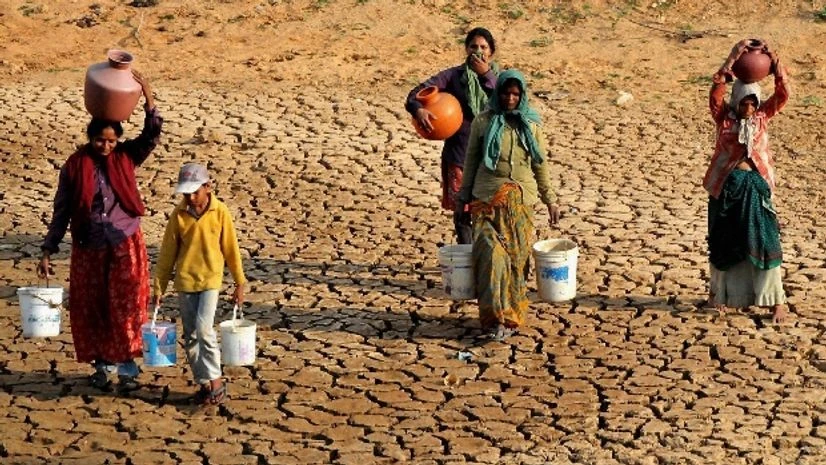
In Jharia, water supply has been disrupted for five days due to malfunctioning motor pumps at the Jamadoba Water Plant, affecting around 1 million residents. The system has failed in Zones 1 and 2, with four out of five pumps out of order. Workers have repaired a 240 HP pump and achieved partial restoration with a 480 HP pump, but supply remains limited. Water was partially restored to Pathardih and other areas through temporary measures. MLA Purnima Neeraj Singh has instructed Jhamada's MD, Dilip Kumar, to address the crisis and install new pumps. BJP leaders have also urged for swift action. Full restoration is anticipated by Saturday.
)
As summer approaches, the Rajasthan government has rolled out a contingency plan to tackle the state's persistent water scarcity. With annual rainfall ranging from 100 mm to 800 mm and limited groundwater availability, Rajasthan faces significant water challenges. Samit Sharma, Secretary of the Public Health Engineering Department (PHED), has instructed officials to complete all approved summer contingency projects by April to prevent water shortages. Efforts will include strict supervision of water supply works, action against illegal connections, and an increased use of water tankers equipped with GPS for better monitoring. Local authorities are also focusing on accelerating the drilling of tube wells, particularly addressing delays caused by power connection issues in coordination with the electricity department and district administration. Sharma emphasized the commitment to ensuring no one in the state faces drinking water problems during the summer.

Water scarcity in Africa is a pressing issue, affecting millions across the continent. Many regions face severe water shortages due to a combination of factors including arid climates, population growth, and inadequate infrastructure. Sub-Saharan Africa, in particular, experiences extreme drought conditions, with annual rainfall often insufficient to meet the needs of its growing population. Additionally, water sources are frequently polluted or inaccessible, exacerbating the problem. Rural areas are especially vulnerable, as they lack reliable access to clean drinking water and sanitation facilities. Efforts to address this crisis include improving water infrastructure, implementing efficient water management practices, and investing in technologies for water conservation and purification. Addressing water scarcity is crucial for ensuring health, economic development, and stability across Africa.
Water scarcity in South America is a growing concern, impacting both urban and rural areas. While the continent is home to major water sources like the Amazon River, regional disparities are significant. Countries such as Chile and Argentina face severe water shortages due to arid conditions and over-extraction for agriculture and industry. Climate change exacerbates these issues by altering precipitation patterns and increasing the frequency of droughts. In contrast, the Amazon Basin is experiencing deforestation, which affects the region's water cycle. Urban areas struggle with water infrastructure challenges, while rural communities often lack access to reliable water sources. Solutions include improving water management practices, investing in sustainable agriculture, and enhancing infrastructure for water distribution and conservation. Addressing water scarcity in South America is vital for ensuring equitable access to clean water and fostering sustainable development.